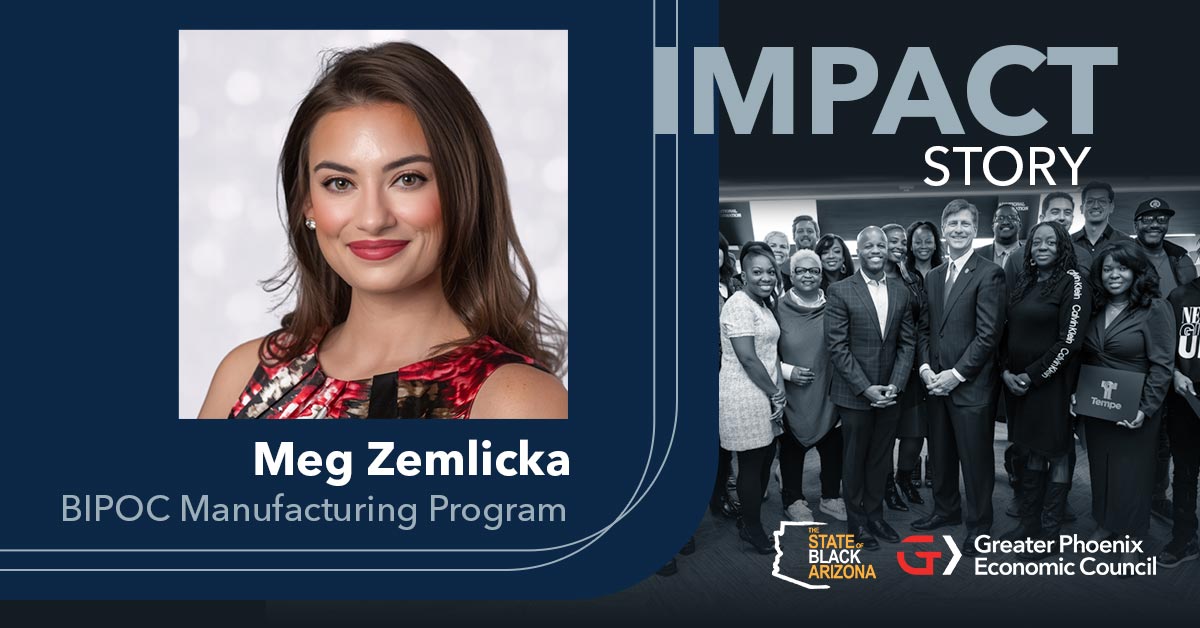

City of Tempe and Community Partners Support Manufacturing Firms Owned by People of Color
Published: 08/20/2024
Updated: 09/16/2024
Part of the IMPACT Stories series by State of Black Arizona.
How the City of Tempe BIPOC Manufacturing Program is growing opportunities for Black, Indigenous and people of color entrepreneurs
Black-owned businesses have been most visible in health and social assistance fields and consumer sectors. Whether due to an overriding drive to serve residents or because of limited capital and barriers to entry in other fields, Black-owned businesses have been next to nonexistent in manufacturing in Arizona. However, the initiative behind the pilot Tempe BIPOC Manufacturing Grant Program could help change that.
In Arizona, manufacturing is in the spotlight thanks in part to the renewed focus on the semiconductor industry. But interest in expanding participation overall, especially from BIPOC individuals, in the business of making things is also evident. From “maker spaces” to “incubators” to interest from community development corporations and established companies looking for new suppliers, manufacturing is growing and offering new opportunities for Black, Indigenous and people of color entrepreneurs.
“Interestingly, there were virtually no Black-owned businesses in manufacturing and utilities, two sectors that require substantial startup capital.” - State of Black Business Report, 2021
In 2022, with support from Mayor Woods and City Council members and federal funds developed through Congressman Greg Stanton’s office, Tempe asked State of Black Arizona to help coordinate the “many moving parts” of the BIPOC Manufacturing Grant Program and evaluate the pilot program.
Tempe then worked with a committee of community partners, in addition to State of Black Arizona, including RAIL Community Development Corporation, Tempe Chamber of Commerce, Hustle Phoenix, and Pacific Southwest Minority Supplier Development Council, to identify 26 early-stage BIPOC-owned manufacturers in Tempe. Each business was matched with a partner for personalized, one-on-one work and mentoring. Quarterly learning sessions for the cohort developed new expertise in such areas as digital marketing, finance, banking, and accessing capital and resulted in a strong support network among the businesses.
Meg Zemlicka, City of Tempe Economic Development Program Manager for Business Retention, Workforce Development and Redevelopment helped provide learning opportunities and served as the city’s point of contact. Based in part on support programs in other cities for “micro manufacturing” or “small batch” and “on demand” processes, she noted that Tempe’s pilot stood out for its focus on involving community organizations to identify potential participants and support the businesses directly. Without the community knowledge and experience, locating and serving the businesses selected would have been difficult.
Each business received a grant of $25,000 for eligible expenses. Funds, were mostly used for new product development and reformulation, followed by process development and equipment upgrades, raw materials, marketing and digital advertising, supply chain development and initial production runs, and website development.
The BIPOC grant program was a first in metro Phoenix, but the feedback from participants and the evaluation by State of Black Arizona showed its value and potential for the future. Participants with smaller businesses noted that the support and funds catalyzed growth and improvements that they wouldn’t have been able to do otherwise. Among the larger businesses, the funding helped increase visibility and fine-tune processes.
Overall, the manufacturing businesses showed gains in every category researched, including production, revenue, and employment. Although the greatest strides may be seen in future years and no guarantees exist for these businesses, the data from the pilot point to numerous reasons for confidence in the businesses and more cohorts for this potentially far-reaching support program.
For a taste of Black-owned manufacturers, Arizonans should check out:
- LaCheris Luster and RecoFiT, a maker of high-quality consumer compression gear to help athletes perform better and recover faster.
- Jelani Jones and Skate Forty 8, a purpose-driven for-profit skateboard company that collaborates with diverse local artists to create skateboards that empower kids in our communities.
As the evaluation revealed, “while many businesses fail, those that thrive contribute greatly to local and regional economies…With continued efforts such as the Tempe Micro-Manufacturing Grant Program, Tempe’s local manufacturing sector is poised for success.”
Learn more about the Tempe BIPOC Manufacturing Grant Program.